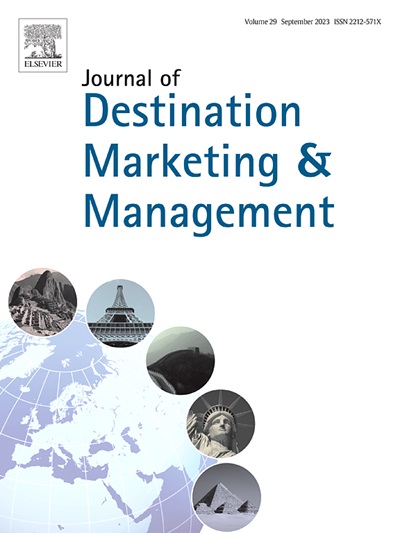Are you troubled? Tourists' psychological fatigue and intentional avoidance caused by perceived homogeneity in tourism live streaming
IF 7.4
2区 管理学
Q1 HOSPITALITY, LEISURE, SPORT & TOURISM
引用次数: 0
Abstract
The phenomenon of homogeneity in tourism communication is becoming evident, adversely affecting tourists' experiences. However, the academic community has largely overlooked this issue. Based on the Stimulus-Organism-Response theory, this study constructs a causal relationship model involving perceived homogeneity, psychological fatigue, and intentional avoidance in the context of tourism live streaming. Using the PLS-SEM method, survey data from 306 tourists who watch tourism livestreams every day were analyzed. The analysis identified two factors that contribute to tourists' psychological fatigue: perceived information homogeneity and perceived e-servicescape homogeneity. Tourists' reactions to homogeneity include an internal processing organism, encompassing three dimensions of psychological fatigue: cognitive, emotional, and motivational. The ultimate behavioral response to these fatigues is intentional avoidance. This study advances the online tourism marketing and virtual tourism literature by developing and empirically testing a comprehensive model and provides practical guidance for tourism marketers and live streaming organizers by revealing the dual nature of live streaming in tourism.
你有困扰吗?旅游直播中感知同质化导致的游客心理疲劳和故意回避
旅游传播的同质化现象日益明显,对游客体验产生不利影响。然而,学术界在很大程度上忽视了这个问题。基于刺激-机体-反应理论,构建了旅游直播中感知同质性、心理疲劳和故意回避的因果关系模型。利用PLS-SEM方法,对每天观看旅游直播的306名游客的调查数据进行了分析。分析发现游客心理疲劳的两个影响因素:感知信息同质性和感知电子服务逃避同质性。游客对同质化的反应是一个内部加工有机体,包括心理疲劳的认知、情感和动机三个维度。对这些疲劳的最终行为反应是故意回避。本研究通过开发和实证检验一个综合模型来推进在线旅游营销和虚拟旅游文献,并通过揭示旅游直播的双重性质,为旅游营销人员和直播组织者提供实践指导。
本文章由计算机程序翻译,如有差异,请以英文原文为准。
求助全文
约1分钟内获得全文
求助全文
来源期刊
CiteScore
18.60
自引率
3.60%
发文量
46
审稿时长
43 days
期刊介绍:
The Journal of Destination Marketing & Management (JDMM) is an international journal that focuses on the study of tourist destinations, specifically their marketing and management. It aims to provide a critical understanding of all aspects of destination marketing and management, considering their unique contexts in terms of policy, planning, economics, geography, and history. The journal seeks to develop a strong theoretical foundation in this field by incorporating knowledge from various disciplinary approaches. Additionally, JDMM aims to promote critical thinking and innovation in destination marketing and management, expand the boundaries of knowledge, and serve as a platform for international idea exchange.

 求助内容:
求助内容: 应助结果提醒方式:
应助结果提醒方式:


